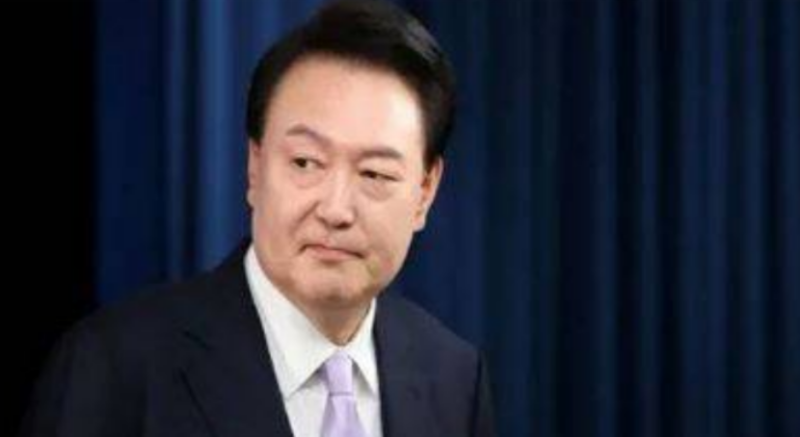Seoul (Web Desk): In a stunning turn of events, South Korean President Yoon Suk Yeol made an unexpected announcement late Tuesday, declaring martial law across the nation.
He argued that it was necessary to protect the country from the increasing threats posed by North Korea and to combat what he described as anti-state forces within the opposition.
Yoon's declaration came after a period of intense political friction, particularly over a contentious budget proposal, which had resulted in significant cuts by the opposition-controlled National Assembly.
However, within hours, the situation took an unexpected turn. The National Assembly quickly moved to challenge Yoon’s decision, voting overwhelmingly to reject the martial law as illegal.
This prompted a rapid response, with soldiers briefly entering the parliament building as tensions escalated.
Protests erupted outside, with crowds gathering to voice their opposition to the president's actions, and lawmakers took immediate steps to rescind the declaration.
Facing growing pressure and a potential constitutional crisis, Yoon backtracked on his initial decision, withdrawing the military presence and pledging to lift the martial law.
The president’s abrupt reversal followed demands from the assembly, which is constitutionally empowered to nullify such measures.
His attempt to secure control and assert his authority was met with resistance from both lawmakers and the public, raising questions about his leadership and the stability of his government.
The dramatic episode comes at a time of increasing dissatisfaction with Yoon's leadership, as reflected in a sharp decline in his approval ratings.
This has fueled speculation about his political future, with many critics accusing him of undermining democratic institutions.
In addition, the international community, including the United States (US), expressed concern over the potential erosion of South Korea’s democratic processes.
Yoon’s initial justification for the martial law was to safeguard the country from perceived threats, particularly from North Korea, while also combating what he called a “monstrous” opposition in the National Assembly.
However, his decision to invoke such extreme measures has left many questioning whether it was an overreach or a necessary action to preserve his government’s legitimacy.
The reversal of the martial law has only deepened the uncertainty surrounding Yoon's presidency, leaving South Korea in a state of political turmoil.
With the opposition gaining momentum and the public growing increasingly skeptical, the road ahead for Yoon appears fraught with challenges.


